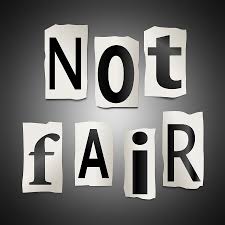I want to share a personal story with you that happened when I was in the second grade. I always loved to read, I started reading even before I entered elementary school, and I was the best reader in the classroom – together with Stefan Lohwasser, he loved to read as much as I did. The two of us were sitting next to each other, we were friends inside and outside of the classroom, and we had this friendly competition going on challenging each other to do better and better.
Our teacher, Frau Schwarz, always gave out little stickers for a task well done. She usually used these little dot stickers; and my ‘Lesefibel’, a schoolbook full of simple stories, was full of little dots stuck next to the stories I had read out loud in class.
For extra special achievements, Frau Schwarz handed out extra special stickers: a jolly little frog. Those frogs were not given out lightly.
One day, one of the kids in class who had trouble reading was asked to read one of the stories in our book. His name was Frank. He didn’t read fluently, he stumbled through the text, but for the very first time, he managed to read the entire thing without any help from our teacher. As he was finished, he beamed. He knew he had done something special. And he beamed even more when Frau Schwarz put one of the coveted frog stickers in his book.
I cannot tell you how much that nagged me. I was the best reader in class (tied with Stefan Lohwasser), and I had never gotten a frog sticker. It just wasn’t fair! And then I did something I am still ashamed of today: during recess, I carefully removed the frog sticker from Frank’s book – and put it into mine. After all, I deserved it much more than he did, didn’t I?
Of course my crime was discovered. Frank noticed that the sticker was gone – and reported the theft tearfully to our teacher. And since I was practically sitting next to Frank, with my book proudly opened to the page with the frog sticker, Frau Schwarz quickly figured out what had happened. And so she took the two of us aside.
I first tried to deny that I stole the sticker. After all, weren’t my reading skills worthy of this prize, wasn’t it logical that this sticker happens to be in my book? But eventually, I had to confess. And I have to say, Frau Schwarz was very kind and even showed some understanding in the situation. I had to remove the sticker from my book, Frank got a brand new one, and I had to apologize to him. Then she sent Frank back to his seat and talked to me some more. I don’t remember her exact words, but she said something like, ‘Kerstin, you are a very strong student. Everything comes so easy to you, and I know you are a very good reader. It’s not so easy for Frank. It’s much harder for him to learn than it is for you. So I gave him the frog sticker to encourage him. He needs it much more than you do.’ I remember being stubborn, ‘But, but, Frau Schwarz, this isn’t fair!’ ‘Kerstin, it’s not always about fairness. Sometimes it is much more important to be gracious – and to help those who need a little extra help.’
I don’t think my 7 year old self really bought into that. And even though I’ve matured since then, my 51 year old self sometimes struggles with that. I’ve earned it – why don’t I get what I think I deserve? But, as we all had to learn, from a very young age: life just isn’t fair. There are always those who will be disadvantaged – like Frank, who, as I realized at some point, came from a very difficult and unstable home and just didn’t have the same head start that I had.
Life isn’t fair. Human dreams of a truly egalitarian society have remained utopian. Human greed and hubris and egotism, all, which we in church jargon like to call ‘sin’, have made sure that there are always those who come out on top – and leave the majority in the dust. And of course this should disconcert us, make us angry, lead us to activism.
And it may seem scandalous to us, but God is not about fairness. God is about justice – but in a different sense than we like to think of justice. We like to think of justice as a matter of ‘quid pro quo’, ‘tit for tat’, ‘an eye for an eye’ – but this is not what God calls justice. If you read through the Bible, beginning with the Old Testament, God’s justice is always connected to grace.
The story about Jonah is a prime example for that. You may remember the story from Sunday school: Jonah is sent by God to prophesy doom and destruction over the great city of Niniveh because of their sinful ways. Jonah at first doesn’t want to do, he even tries to get away, boards a ship in the opposite direction, then there’s a storm, then Jonah is thrown overboard, then he’s swallowed by a big fish, he stays three days within that fish, has a change of heart and promises to do God’s will after all. So Jonah is spit out and goes to Niniveh, where he proclaims that, after 40 days, the city and everybody and everything in it would be destroyed.
Then he leaves the city and puts up camp at a safe distance, waiting for the spectacle to happen. But the unexpected happens: the people of Niniveh repent. God changes his mind, we read. And this is where today’s story sets in: Jonah is mad. Why, God, did I go through all the trouble if you don’t follow through with your plan? Doesn’t this city deserve to be destroyed? It’s not fair!
And can’t we all identify with Jonah to a point? Don’t we all know the feeling that we get the short end of the stick? Don’t we all know the feeling that we don’t get what we deserve, and others get more than they deserve? Why does Frank get the frog sticker?
Today’s gospel also stresses the strange economy of God’s justice. Jesus tells the parable of the workers in the vineyard. Some are hired early and work all day. By and by, more workers are hired – and all receive the same wage at the end of the day. The ones who work 12 hours, and the ones who work merely one hour. But, but, Lord! Why does this person get the same money even though they worked much less? It’s not fair!
The last will be first, and the first will be last. Those words turn our worldview, our understanding of justice upside down. It opposes our sense of fairness. But don’t I deserve God’s grace more than someone else? This question, of course, shows that we may not get the concept of grace – it is not something we deserve. It is freely given by God, this generous giver of life.
Thinking back at my experience in the second grade, I see a glimpse of God’s kingdom in the actions of my teacher, Frau Schwarz. It may not have been fair, at least in my eyes – but she recognized that Frank needed that extra little grace, needed it more than I did. It’s not always about fairness. Sometimes it is much more important to be gracious – and to help those who need a little extra help. Looking back, I can see and understand that.
Life isn’t fair. But: Life in Christ is grace-filled. We don’t deserve God’s good gifts – food, shelter, a world we can live in. It’s all freely offered to us. Nobody among us deserves God’s grace: grace is freely offered to us as well. Shouldn’t we rejoice that our brother, our sister, our sibling is embraced and saved by God’s grace as well? After all, Christ died and rose for all – for God so loved the world…
And: we profit from that gracious justice as well. We are forgiven, each and every day.
Let’s keep the goal of our existence in mind: God’s kingdom, a realm where everyone is reconciled with God and with one another. A kingdom of peace. A kingdom of true justice, God’s grace-filled justice. We better wrap our minds – and our hearts – around that. We better get used to God’s strange economy of justice by starting to practice living the kind of gracious justice Christ modeled.
For how could we enjoy living in the realm of God’s kingdom if we think that there are those who don’t deserve to be included? How could we enjoy God’s kingdom and God’s strange economy of justice if we carry envy in our hearts?
This post is also available in: German




